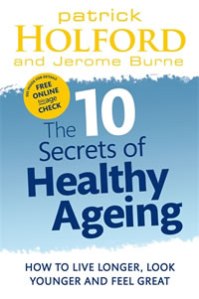This tells how I became caught up in debates about evidence and medicine and why I believe like many others that the way drugs are tested needs to change. It answers the questions: Why have your started this blog? And: What do you hope to achieve? It also explains why it’s guaranteed that the older you get the less evidence based your treatment will become. I’m doing this for my own good but if it is successful you will benefit hugely as well.
The boxes in the night
About 15 years ago I spent an extraordinary evening in a psychiatric unit in north Wales. I had gone to visit the director because I’d noticed a few brief but unusually critical comments he’d made in several newspapers about the new anti-depressant SSRI drugs. How they could make some people murderously violent or suicidal. I was curious about his background story – who was this doctor so blatantly breaking ranks?
His name was Dr David Healy and he’s since gone on to become a high profile campaigner for much greater transparency about the way drugs are tested and for much more care and attention to be paid to the risks. Pharmageddon, his new book, is a roar of indignation at the dangers the current system exposes us to.
What I remember most vividly were the boxes. Half a waiting room was full of cardboard boxes filled with paper sheets that, I discovered, contained the raw data generated by clinical trials of SSRIs involving thousands of people. What was so unusual was that normally nobody got to see this stuff outside the company. Not the regulators and certainly not doctors.
Healy had it because he was being called as an expert witness in a court case being brought against one of the companies making SSRIs by the family of a man who had for the first time in his life become violent after being put on one of these pills and killed his wife and grand-daughter. It made explosive reading.
Warnings ignored
During a long evening Healy explained what they showed and transformed my view of the drug industry. I guess it was the equivalent of chatting to a renegade banker ten years ago about the reality behind credit default swaps. Like most people I vaguely assumed the industry was carefully regulated with patients’ well-being and safety paramount. But a very different picture rapidly emerged.
He explained that even though companies had known about the suicide problem, any trials that revealed it were simply not published. Even though there was an easy way to avoid it – put a patient who shows signs of agitation after starting the drug on a tranquiliser – this advice was not passed on to doctors because it would mean admitting to the suicide risk.
Even worse the German regulator had insisted on including such advice with every pack of the pills but UK and USA regulators had not been informed of this. Experts knew there was a problem because there had been a number of USA court cases but the strategy was to settle them out of court and get the plaintiffs to sign a gagging order to prevent the details from becoming public.
The UK watchdog the MHRA certainly knew about it because he had repeatedly warned the agency and he showed me a thick file of correspondence to prove it. However their response was to stonewall. (Read more…)



Er.. I have looked and not found good evidence for 5-a-day. Tesco believes it though. Reference?
Agree. 5-a-day never RCT trialed nor was recommended number of alcohol units. Just icked out of air as reasonable amount. Not sure where tesco fits in.